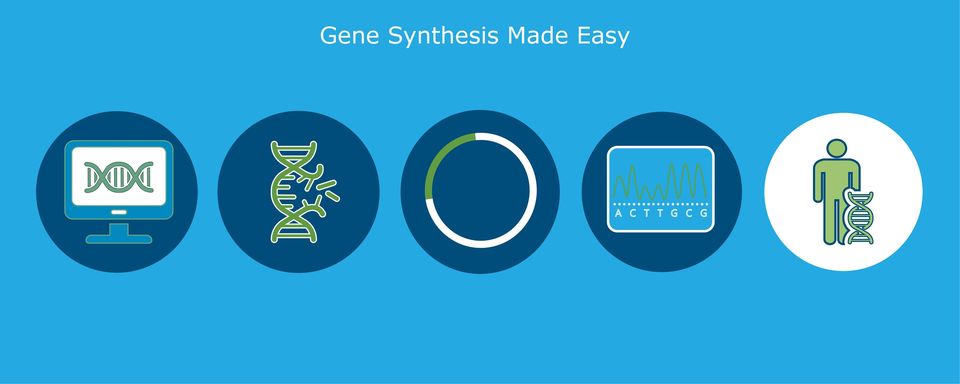The Power of Gene Synthesis Services in Modern Biotechnology
Blue Heron Bio . Follow
1 month ago
The rapid advancement of genetic engineering has been a game-changer in science, medicine, and industry. At the heart of this revolution lies gene synthesis, a service that allows scientists to create custom DNA sequences quickly and accurately, unlocking a world of possibilities for research, therapeutic development, and innovation.
Whether you’re working in drug discovery, agricultural biotech, or synthetic biology, gene synthesis services offer an essential solution to accelerate projects and overcome limitations in traditional genetic manipulation techniques.
What is Gene Synthesis?
Gene synthesis is the artificial creation of DNA sequences in a laboratory. Rather than relying on the time-consuming methods of cloning and mutating genes from natural sources, gene synthesis allows scientists to design and construct any DNA sequence from scratch. This includes both naturally occurring sequences and completely novel, engineered sequences designed to meet specific experimental needs.
The beauty of gene synthesis lies in its flexibility. You’re no longer constrained by the genetic material available in nature—you can design genes optimized for specific hosts, alter codon usage for better expression, or even introduce precise mutations to study gene function.

How Does Gene Synthesis Work?
Gene synthesis involves several key steps:
-
Designing the DNA Sequence: Researchers can design the desired gene sequence using specialized software, incorporating specific codons, regulatory elements, and features that suit their experimental needs. This stage allows for full customization, enabling scientists to create anything from simple genes to complex, multi-gene constructs.
-
Chemical DNA Synthesis: The designed gene is synthesized chemically, where short fragments of DNA (oligonucleotides) are assembled step by step. These oligonucleotides are combined to build the full-length DNA sequence.
-
Assembly and Cloning: After synthesis, the fragments are assembled into the complete gene. The synthesized gene can then be cloned into a suitable plasmid vector for further use in various experiments, including gene expression, mutation studies, or protein production.
-
Verification: Once the gene is synthesized, the sequence undergoes verification to ensure accuracy. Advanced techniques like sequencing and restriction enzyme analysis are used to confirm that the constructed gene matches the original design.
Advantages of Using Gene Synthesis Services
Gene synthesis services provide numerous advantages over traditional methods of gene cloning and modification. Here are some key benefits:
-
Time Efficiency: Traditional cloning techniques can take weeks or even months to isolate, clone, and modify genes. In contrast, gene synthesis services can deliver custom DNA sequences in a matter of days, speeding up the research process significantly.
-
Design Flexibility: Gene synthesis allows for complete control over the DNA sequence. Scientists can easily introduce mutations, optimize codons for different organisms, or even create entirely synthetic sequences that do not exist in nature.
-
Cost-Effective: As the technology behind gene synthesis has advanced, the cost of synthesizing custom genes has significantly decreased. Outsourcing gene synthesis services is now an affordable option for most labs, eliminating the need for expensive and labor-intensive in-house cloning efforts.
-
Error-Free Sequences: Manual cloning often introduces errors, especially when dealing with large or complex sequences. Gene synthesis services offer highly accurate DNA sequences, ensuring that the final product is error-free and ready for experimentation.
-
Access to Difficult Sequences: Some DNA sequences are difficult to clone or amplify using traditional methods due to secondary structures or repetitive elements. Gene synthesis bypasses these issues, providing access to sequences that were previously challenging to obtain.
Applications of Gene Synthesis Services
Gene synthesis services have become indispensable across many fields of science and industry. Some of the most popular applications include:
-
Drug Development and Therapeutics: Pharmaceutical companies are utilizing gene synthesis to create custom genes for protein expression, enabling rapid drug discovery and development of novel therapeutics, including biopharmaceuticals like insulin or monoclonal antibodies.
-
Vaccine Development: Custom genes synthesized to encode viral antigens play a key role in developing new vaccines. In the case of mRNA vaccines, synthesized genes are used to produce the mRNA strands that encode the necessary viral proteins.
-
Synthetic Biology: In synthetic biology, researchers design and build new biological systems from the ground up. Gene synthesis allows for the creation of entirely synthetic genes, enabling scientists to engineer microorganisms with desirable traits, such as increased biofuel production or the ability to degrade plastic.
-
Agricultural Biotechnology: Crop improvement relies heavily on genetic engineering. Gene synthesis is used to introduce beneficial traits into plants, such as pest resistance, drought tolerance, or improved nutritional content.
-
CRISPR Gene Editing: CRISPR technology relies on the introduction of specific guide RNAs to target and modify genes. Gene synthesis is used to produce these guide RNAs and other CRISPR components, enabling precise gene editing in a variety of organisms.
Choosing the Right Gene Synthesis Service
With numerous companies offering gene synthesis services, it’s essential to choose the right provider based on your specific needs. Here are some key factors to consider:
-
Customization: Ensure that the provider offers full customization options, allowing you to design genes with your required specifications. This includes codon optimization, cloning into vectors, and incorporating specific regulatory elements.
-
Turnaround Time: Time is often a critical factor in research. Make sure the service you choose has a fast turnaround time that aligns with your project timeline.
-
Quality Control: Look for services that offer stringent quality control measures, such as sequence verification and error-checking, to ensure that you receive accurate, high-quality DNA sequences.
-
Scalability: Depending on your project, you may need small-scale gene synthesis for initial experiments or large-scale synthesis for industrial applications. Choose a service provider capable of scaling production to meet your needs.
-
Technical Support: Reliable technical support can be invaluable when designing complex gene constructs. A good provider should offer assistance with gene design, vector selection, and troubleshooting.
Conclusion
Gene synthesis services have become a cornerstone of modern biotechnology, providing researchers with the ability to rapidly and accurately create custom DNA sequences. By leveraging these services, scientists can accelerate their research, explore new avenues of discovery, and push the boundaries of genetic engineering. Whether you're working on drug development, synthetic biology, or agricultural biotech, gene synthesis services offer the tools and flexibility you need to innovate and succeed.
Recommended topics
Recommended from Guest Post
Etarat online
Convenient Solutions for Mobile Tyre Repair and Affordable Tyres Across UAE
April 22, 2024Gavin Flannery
Gavin Flannery: Pioneering Digital Marketing Excellence at My Robot Monkey
February 26, 2024Shubh

